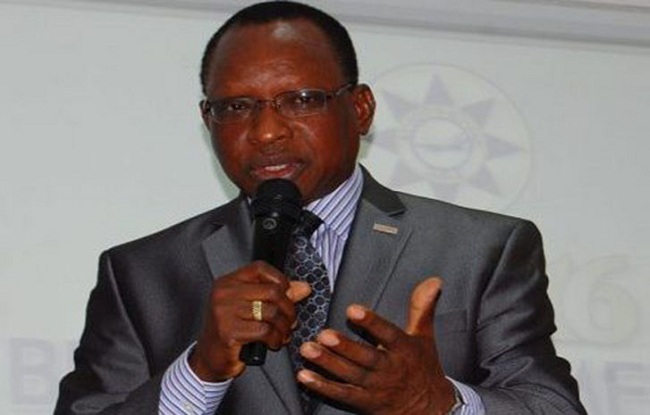PRESIDENT of Aviation Safety Round Table (ASRT), Dr Gabriel Olowo, has said that the lack of preservation of the sanctity of contracts has been found to have continually eroded investors’ confidence and inhibits Foreign Direct Investment (FDI) not only in the aviation industry but other industries in Nigeria.
This came just as he took a hard look at the Murtala Muhammed International Airport terminal, calling for the immediate stripping or pulling down of the facility and rebuilding’
Olowo said, “Murtala Muhammed International Airport, which is Nigeria’s number one airport built in 1978, should be shut down, stripped 100 percent and rebuilt. It remains a national disgrace and an eyesore when speaking about the world’s contemporary modern airports. Fingers A, B and C as in the original masterplan should be added like yesterday. Aerotropolis can then come to compliment the aerotropolis.”
Speaking at a book launch authored by the former president of the National Association of Nigeria Travel agencies (NANTA), Elder Soji Amusan, Olowo confirmed that with foreign airlines’ home remittance backlog, which he disclosed stood at $718 million as of March 2023, represents 44 percent of total airlines’ blocked funds in the world.
While describing the debt and others as a flagrant breach of the law of international trade, Olowo said that airlines under the Bilateral Air Services Agreements (BASA) are mandated to remit net of earnings (after wages and taxes) back to their home offices, with the same applying to the country’s airlines when they fly outside the shores of the country.
To him, it is their trade funds and not borrowed, lamenting that unfortunately, this is happening the second time in Nigeria which makes it look like a disregard for honouring contracts in an economic policy.
Olowo recalled that during the early 1990s, the same scenario saw the likes of Swiss Air, Scandinavia, Alitalia and Varig Brazilian Airlines among others exit Nigeria with all the negative multiplier effects like job losses, the collapse of industries, the collapse of trade and commerce and strained relations among the operating nations such as cumbersome visa restriction regime.
He said, “Today, the foreign airlines are using all forms of strategy to withdraw their inventories and seats out of Nigeria’s Point of Sale (POS) and may eventually quit as demonstrated with the on and off flight operations of once flourishing Emirates Airlines.
“Nigeria’s national carrier is stillbirth in eight years and surrounded with legal tussles with endless controversy. Neither do we have sufficiently strong Nigerian carriers that can provide the much-needed services by these foreign airlines.
“Nigeria’s flight bookings in April alone collapsed by approximately 50 percent and travel agents are losing tonnes of business and huge revenue to the government through payment of Ticket Sales Charge (TSC), Passenger Service Charge (PSC) and Cargo Service Charge (CSC) on tickets not sold. Passengers are faced with ever-escalating air ticket fares.”
He further noted that regrettably, there are no heavy maintenance facilities, fuelling demand, nor related aviation services in Nigeria to where the country could refer the airlines to utilise the funds.
Olowo stated that in the circumstance, “We should immediately make available these funds if we can spend so much on elections and in addition introduce a policy that would enable passengers to elect, without compulsion, on the form of payment, either in naira or dollars,” an attempt he said would free dollars into the Central Bank of Nigeria (CBN) and reduce the pressure on demand for foreign exchange.
He equally stated that this would make the airlines subsequently release most of the inventories that are presently removed from the market and increase the supply side.
Some African countries he said facing similar difficulty had adopted the system, insisting that Nigeria’s image on disregard for the sanctity of contract would significantly improve and shore up investors’ confidence.
“Aerotropolis cannot adequately fit into the junk we currently parade as an airport. This should be the order of priority. We must be intentional about the birth of two to three strong flag carriers to compete and be designated to all destinations. All political and economic solutions are needed to achieve this task that must be done. Efficient and effective service delivery will follow, tariff will fall and reciprocity will be easily achievable,” he said.
He used the opportunity to condemn the decision of the Minister of Aviation, Hadi Sirika, not to appoint boards for all the aviation parastatals despite several appeals, protests and calls, adding that it portends grave danger for the industry like lack of observance of corporate governance, execution of policies in secrecy which he said gave room for speculation, suspicion and incessant industrial unrest, among others.






